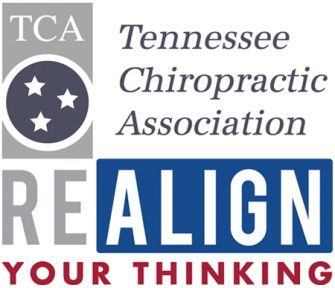Study: Arthritis in Younger Adults More Common Than Previously Reported
 San Jose, CA. – January 8, 2019 – Arthritis, which causes chronic joint pain and stiffness, is significantly more common in American adults ages 18 to 64 than previously estimated, according to a recent statistical study. The condition joins a growing list of diseases affecting younger adults that require immediate treatment, but are often ignored, creating greater risks to their health and well-being.
San Jose, CA. – January 8, 2019 – Arthritis, which causes chronic joint pain and stiffness, is significantly more common in American adults ages 18 to 64 than previously estimated, according to a recent statistical study. The condition joins a growing list of diseases affecting younger adults that require immediate treatment, but are often ignored, creating greater risks to their health and well-being.
The study, published in Arthritis and Rheumatology, estimated that more than 91 million Americans have arthritis, including 61 million adults ages 18 to 64. The estimates for younger adults nearly double previously published national estimates of arthritis incidents.
“The results of this study are eye-opening, particularly because arthritis is a condition commonly associated with older populations,” said Sherry McAllister, DC, executive vice president of the Foundation for Chiropractic Progress (F4CP), a not-for-profit organization dedicated to raising awareness about the value of chiropractic care. “Worse yet, younger people are less likely to seek professional treatment for this condition, which can lead to greater stiffness and discomfort down the road. It’s crucial that any sort of lingering physical discomfort is addressed promptly by a qualified doctor.”
Arthritis is not the only chronic condition affecting more younger adults. Hypertension, melanoma and back and neck pain are also becoming more common. For the latter, treating chronic pain with an opioid raises further risks to young adults’ health and well-being as it may lead to misuse, addiction, overdose and in some cases, fatality. In fact, the age group with the highest rate of nonmedical opioid use is young adults ages 18 to 25.
Instead, experts at the F4CP offer the following tips to help alleviate pain related to arthritis:
- Exercise: Aim for a minimum of 30 minutes of exercise three to five days a week. Learn proper stretching techniques and do them often.
- Eat Right and Drink Water: A healthy diet—rich in fruits, vegetables and healthy fats—can help reduce inflammation and joint pain. Also limit red meat, refined sugar, white flour and processed foods.
- Consult a Doctor of Chiropractic (DC): Schedule a consultation with a local DC to discuss an appropriate care plan that can help reduce pain and optimize overall health and well-being.
“Because the available medications for arthritis pain carry risks of side effects, it’s smart to try other ways to ease pain,” said Marcy O’Koon senior director of consumer health, Arthritis Foundation. “There are many options. Some people find chiropractic to be helpful. Patients will want to check with their primary care doctor or rheumatologist to confirm if chiropractic care is appropriate for their condition.”
Dr. McAllister emphasizes that the current goals for treating arthritis are to relieve pain and improve range of motion of the joints involved. DCs receive a minimum of seven years of higher-level education and are specifically trained to manage disorders of the neuro-musculoskeletal system, including arthritis, as well as counsel on nutrition, exercise and lifestyle practices.
“Doctors of chiropractic successfully treat a wide range of conditions in patients of all ages, which is part of the reason patients report such high satisfaction compared with other types of care,” said Dr. McAllister. “Combined with the right lifestyle choices and preventive care, chiropractic care can help younger adults avoid chronic pain and pursue healthy, active lives.”
Talk to your chiropractor about ways you can help prevent or treat arthritis. Taking into account your current health status, family history and goals, your doctor can help you determine how to best go about treating joint pain to keep you moving. If you don’t have a regular chiropractor, you can find one in your area at www.f4cp.org/findadoctor or www.tnchiro.com/find-a-doctor.
Press release shared by:
A not-for-profit organization, Foundation for Chiropractic Education (501c3) and the Foundation for Chiropractic Progress (501c6) provide information and education regarding the value of chiropractic care and its role in drug-free pain management.
__________________________________________________________________________
This article is being shared as part of TCA’s
“Realign Your Thinking” public-awareness campaign –
helping Tennesseans understand what chiropractic care offers
and the positive role it plays in the overall health care system.
